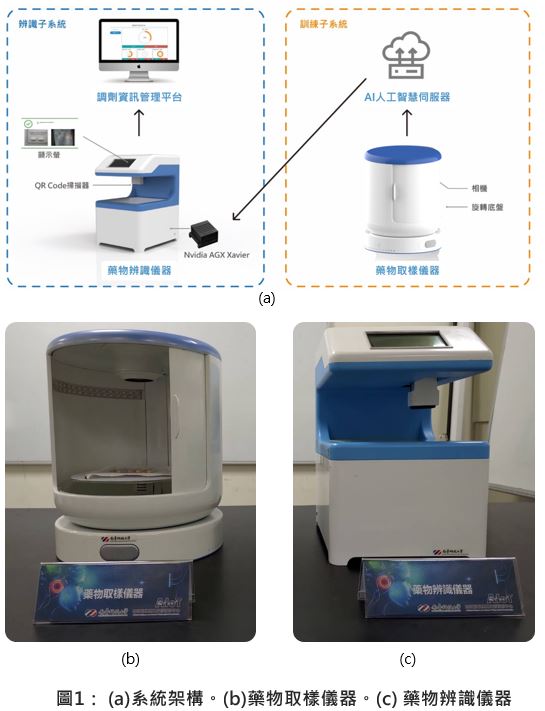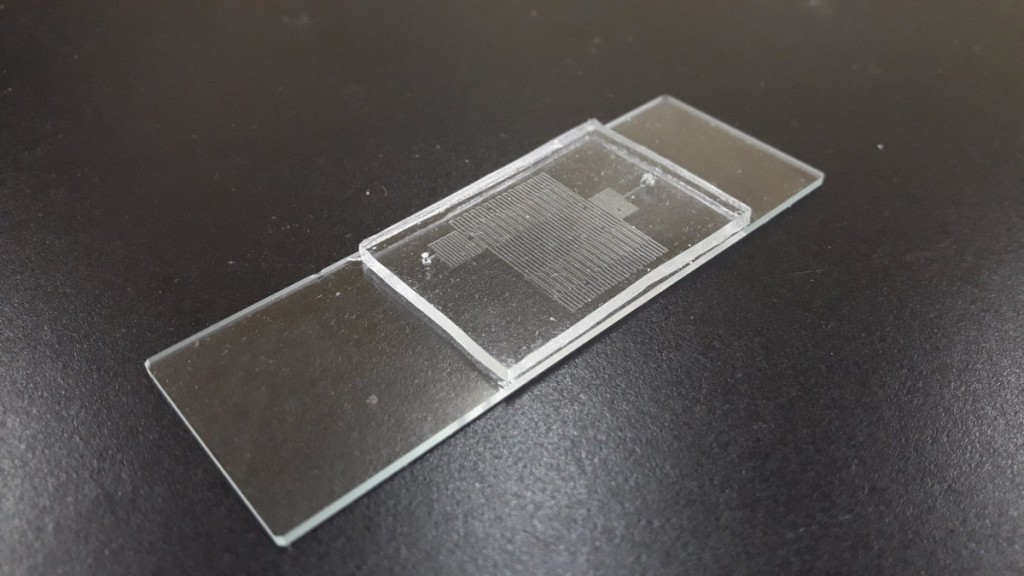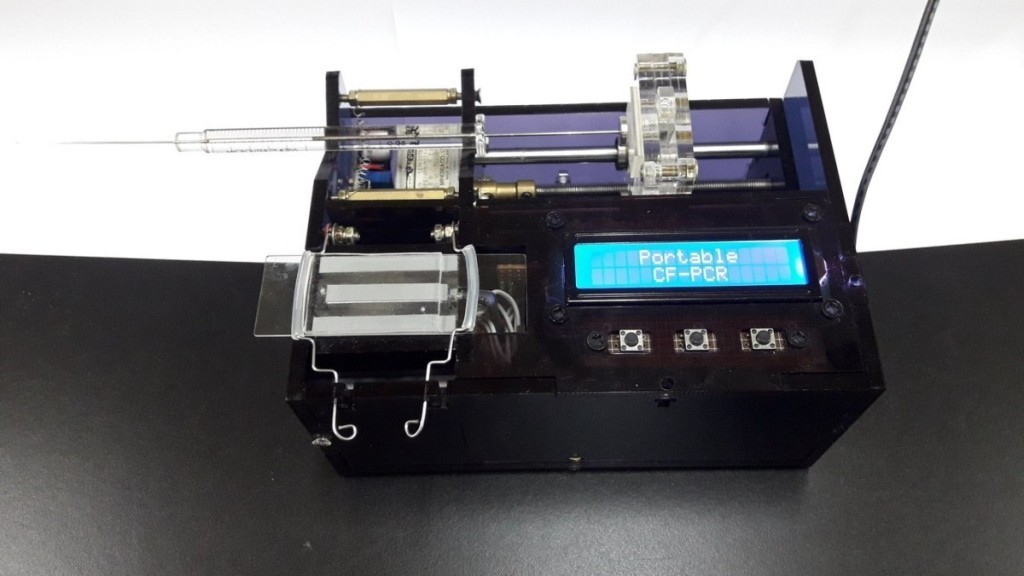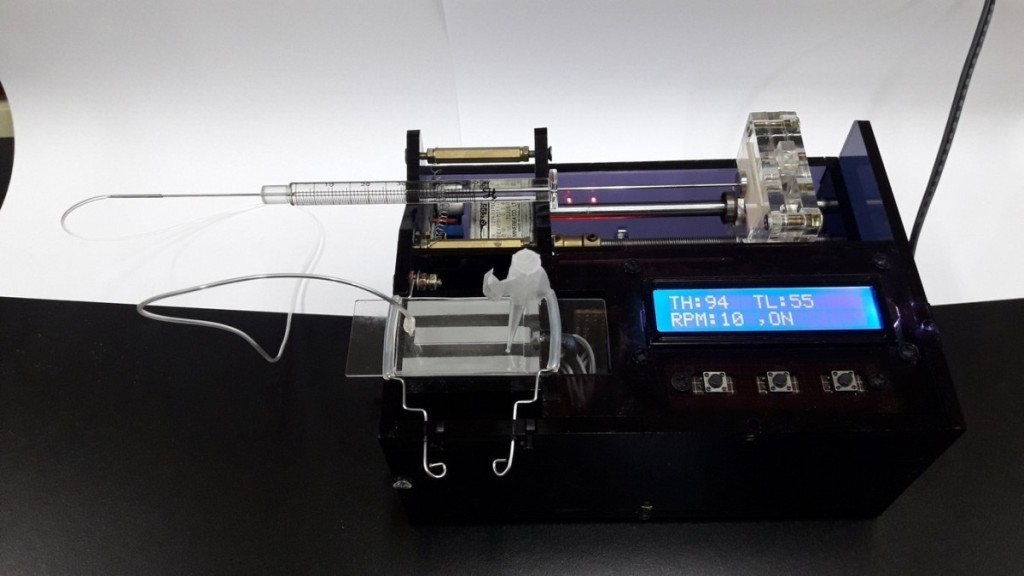| Technical Name | Portable continuous-flow nucleic acid amplification device | ||
|---|---|---|---|
| Project Operator | National Pingtung University of Science and Technology | ||
| Summary | A portable device capable of carrying on a continuous flow PCR is developed. It consists of a heating system, a sample delivery system, a power supply system and a PCR chip. The disposable microfluidic reaction chip is fabricated by the MEMS technology. The microcontroller outputs the PWM signal computed from the PID algorithm to the power transistor, drives the cartridge heater and the Peltier element and constructs a stable heating environment for PCR. A handmade syringe pump is used for pumping the DNA sample into the microfluidic chip. A miniaturized PCR system in a low-cost disposable chip is successfully demonstrated. |
||
| Scientific Breakthrough | Polymerase chain reaction (PCR) is a technology of DNA amplification. After finishing the denaturation, annealing and extension steps each time or completing a thermal cycle, the amount of DNA becomes double compared to the original amount. In this device, the microfluidic chip is fabricated by the MEMS technology and PDMS molding method. The microfluidic chip based on a single meandering channel passes repeatedly through several temperature regions. A portable device capable of carrying on a continuous flow PCR is developed. An Arduino MEGA 2560 microcontroller is used as the main platform, and the whole portable device consists of a heating system, a sample delivery system, a power supply system and a PCR chip. In the heating system, two temperature sensors measure the temperature values at specific points. Then the microcontroller outputs the PWM signal computed from the PID algorithm to the power transistor, drives the cartridge heater and the Peltier element and constructs a stable heating environment. The denaturation (high-temperature) region is heated by the cartridge heater and arranged at the chip center and the annealing (low-temperature) regions are located at the two sides. The temperatures of two annealing regions are regulated by the Peltier element. The extension regions are generated by the thermal gradients between the denaturation and the annealing regions. Inside the sample delivery system, a handmade syringe pump is used for pumping the sample into the microfluidic chip. Through an Arduino NANO microcontroller, the stepper motor speed can be controlled. Three 18650 lithium-ion batteries provide the electric power to the whole device. Some 3 and 5 mm thickness of PMMA sheets are cut with a laser cutting machine and then assembled into the frame of the system. Finally, the gel electrophoresis is performed after the PCR experiment is finished and DNA sample is collected. The DNA of the donkey skin is amplified successfully at the flow rate of 0.4 μl/min. The total time of PCR is 1 hour and 10 minutes. |
||
| Industrial Applicability | DNA複製和檢測分析一直以來都是生物科技產業中最需要的技術之一,本作品為開發一組可攜式DNA複製平台,具有製作成本降低、樣本使用量減少、操作便利、系統微小化及系統組裝容易等優勢,這些均是製造廠商和操作人員對DNA檢測系統的最大期待,未來目標為達成POCT裝置的研製。本技術不需繁瑣的設計,實用性佳,成本低,系統模組化,組裝容易,具多功能性,產業應用性高。 |
||
other people also saw







